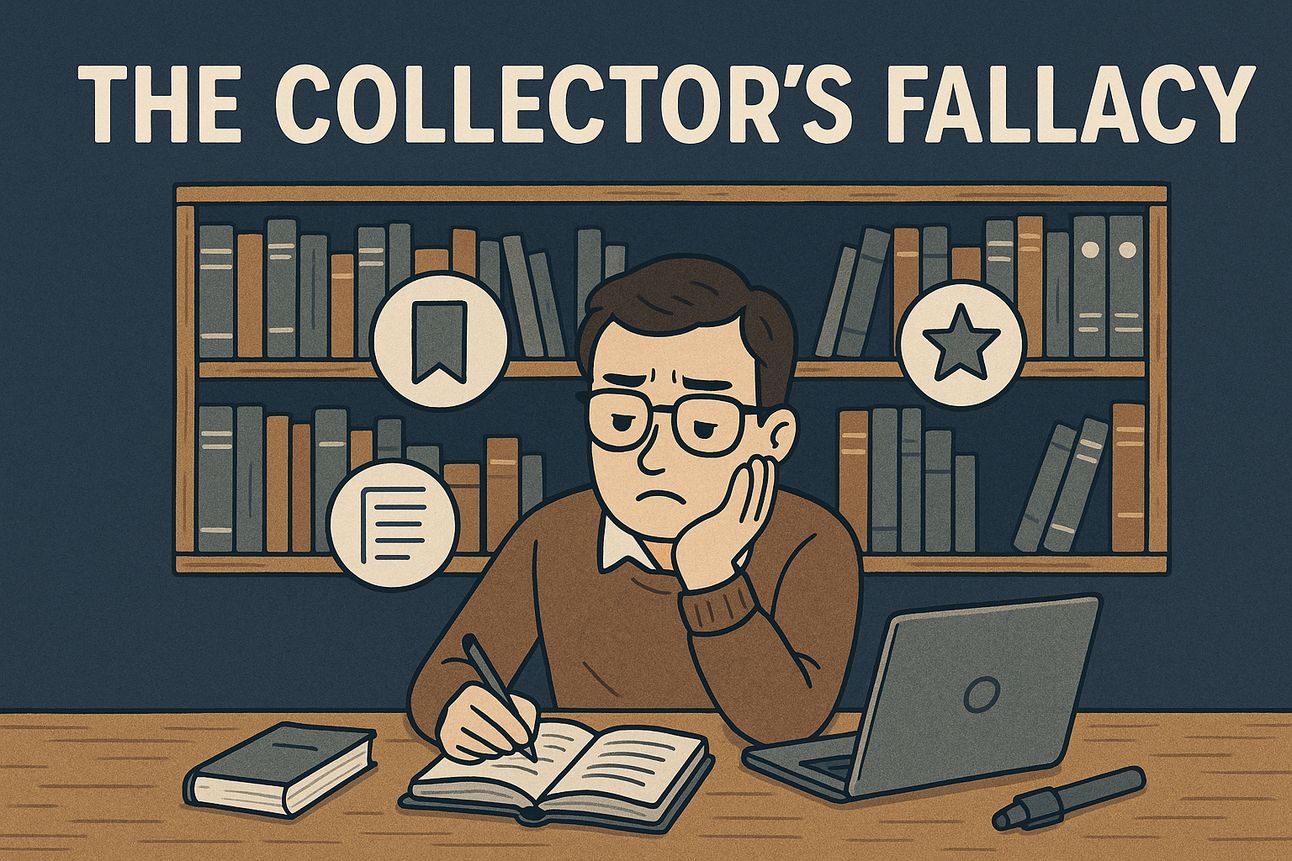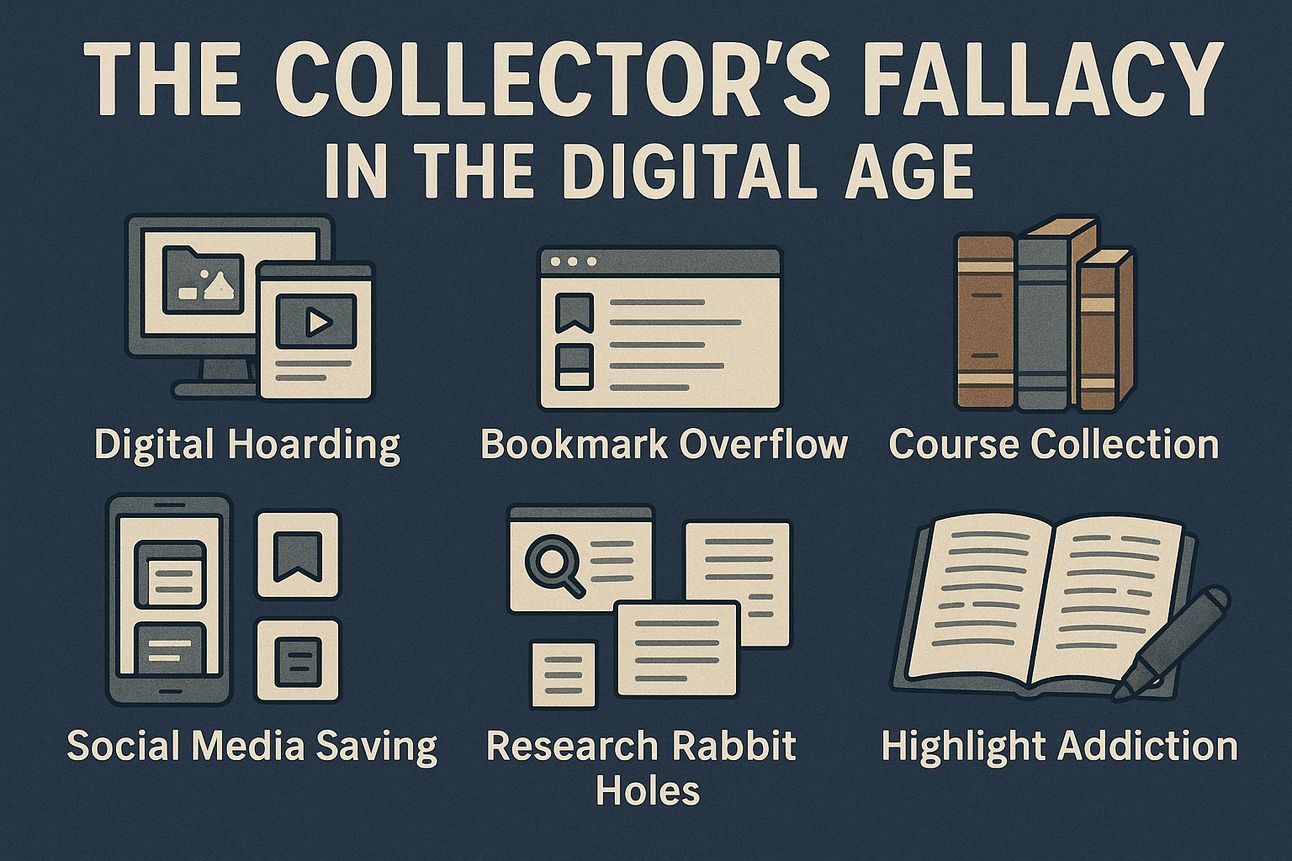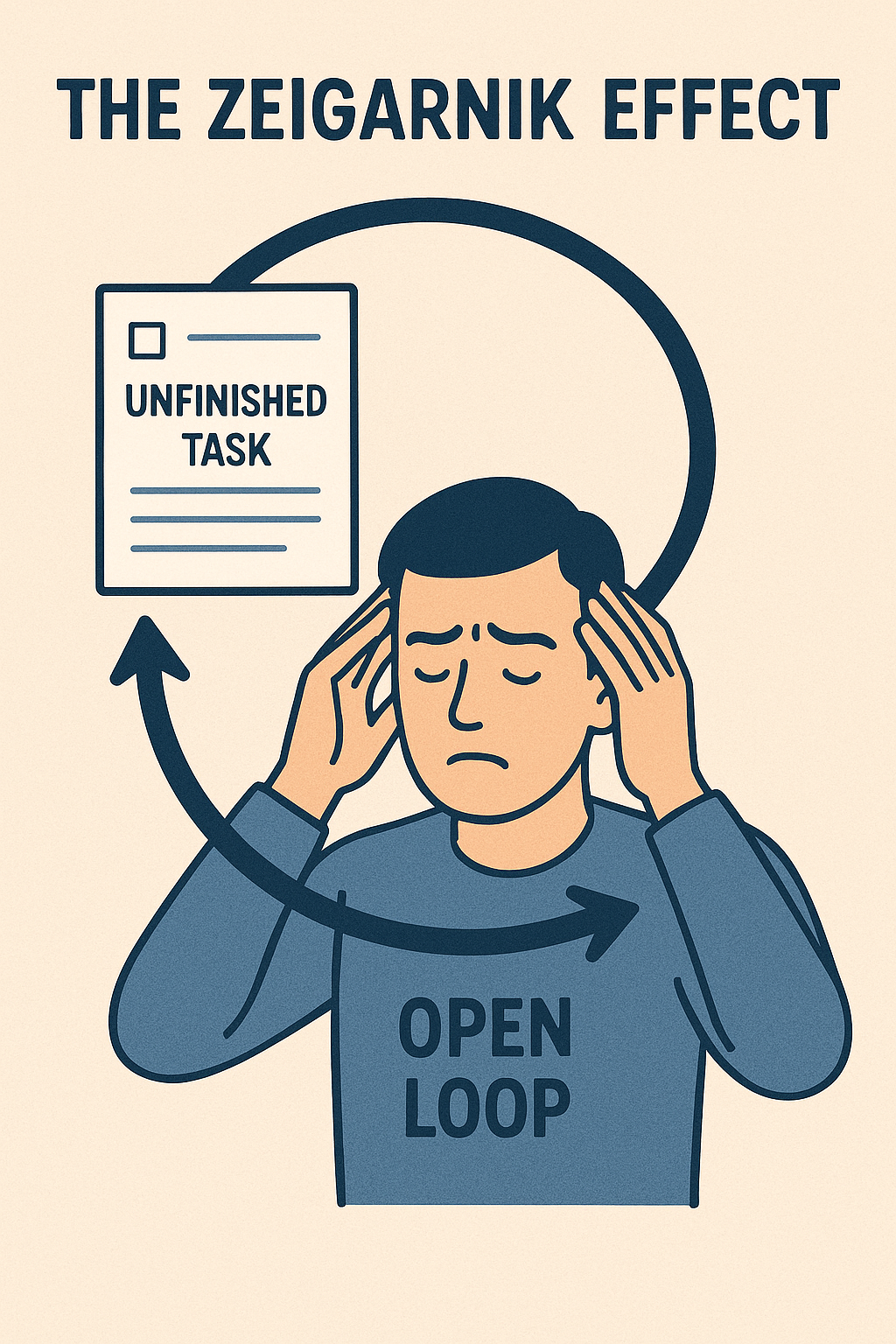- The Wisdom Project
- Posts
- The Collector's Fallacy 101
The Collector's Fallacy 101
Stop gathering, start processing

The Collector’s Fallacy is the mistaken belief that collecting information is equivalent to understanding it, or that having access to knowledge is the same as possessing that knowledge.
It's the assumption that saving, bookmarking, highlighting, or collecting pieces of information means we've somehow absorbed or mastered that knowledge.
Before we dive in, quick word from Rundown AI -
Stay up-to-date with AI
The Rundown is the most trusted AI newsletter in the world, with 1,000,000+ readers and exclusive interviews with AI leaders like Mark Zuckerberg, Demis Hassibis, Mustafa Suleyman, and more.
Their expert research team spends all day learning what’s new in AI and talking with industry experts, then distills the most important developments into one free email every morning.
Plus, complete the quiz after signing up and they’ll recommend the best AI tools, guides, and courses – tailored to your needs.
The Psychology Behind the Collector’s Fallacy
Several psychological mechanisms contribute to this fallacy:
Instant Gratification - Collecting information provides immediate satisfaction and a sense of progress without the mental effort required for deep understanding.
Availability Heuristic - Having information easily accessible makes us feel like we "know" it, even if we haven't processed it deeply.
Illusion of Knowledge - Simply being exposed to information can create a false sense of understanding.
Effort Justification - The work involved in collecting and organizing information makes us feel productive, even when little actual learning occurs.
Future Self Optimism - We assume our future selves will have more time and motivation to process the information we're collecting now.

Modern Collector’s Fallacy
The digital age has amplified the Collector's Fallacy significantly:
Digital Hoarding - Saving thousands of articles, PDFs, and videos with the intention to "read later" but never returning to them.
Bookmark Overflow - Accumulating hundreds of bookmarks that become digital graveyards of good intentions.
Course Collection - Purchasing online courses, books, or educational materials faster than consuming them.
Social Media Saving - Endlessly saving posts, videos, and articles across platforms without ever reviewing them.
Research Rabbit Holes - Spending hours collecting sources for a project but minimal time actually reading and synthesizing them.
Highlight Addiction - Extensively highlighting books or articles while doing little to process or apply the highlighted information.

Why It's Problematic
The Collector's Fallacy creates several issues:
False Progress - It provides the illusion of advancement without actual learning, leading to stagnation disguised as activity.
Decision Paralysis - Too many collected resources can overwhelm and prevent action.
Cognitive Overload - Managing large collections becomes a task that consumes mental energy.
Guilt and Anxiety - Accumulated "to-read" piles create psychological pressure and feelings of inadequacy.
Shallow Learning - Focusing on collection over comprehension leads to superficial understanding.
Opportunity Cost - Time spent collecting could be used for deeper engagement with fewer, better-chosen resources.
The Deeper Issue: Information vs. Wisdom
The Collector's Fallacy reflects a broader confusion between information and wisdom in our data-rich world. Information is raw data, while wisdom involves:
Understanding context and nuance
Recognizing patterns and connections
Knowing when and how to apply knowledge
Developing judgment through experience
Integrating learning with personal values and goals
The goal isn't to stop collecting information entirely, but to:
Be Intentional - Collect with specific purposes and timelines in mind.
Process Immediately - Engage deeply with information as you encounter it when possible.
Maintain Flow - Keep your information pipeline moving rather than creating stagnant pools.
Focus on Application - Prioritize using knowledge over accumulating it.
Embrace Incompleteness - Accept that you can't and don't need to read everything.
Knowledge isn't what you have access to—it's what you've actively processed, understood, and integrated into your thinking.
ICYMI
Last week’s post:
That’s it for this week
See you next week
Cheers
Ayush and Aditi


